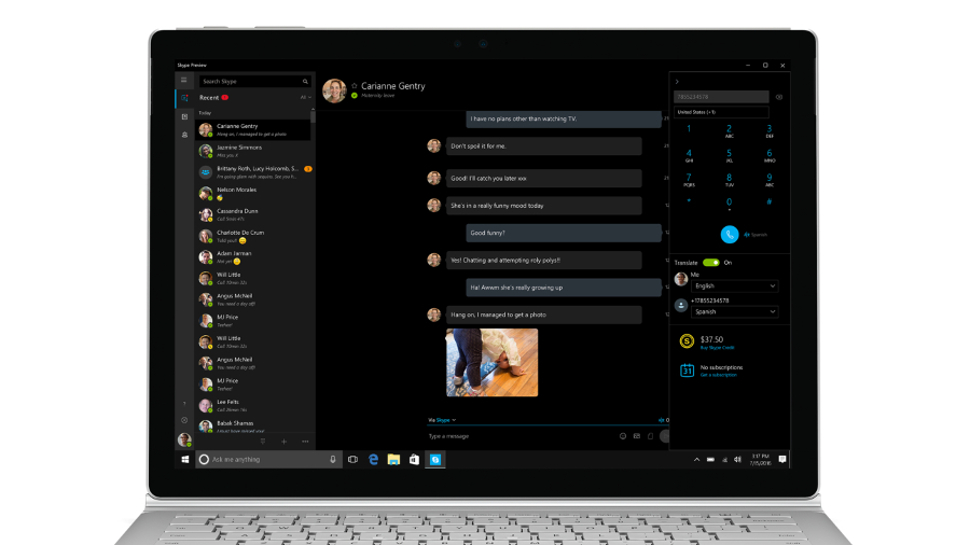There’s a security flaw in Skype which is apparently too hard to fix right now
Microsoft will build the fix into a future version of Skype

There’s a gaping hole in Skype’s update installer which could potentially allow an attacker to gain full control over the host machine, and what’s more, this isn’t something Microsoft can patch against right now, with the software giant having to put off the fix until a future version of the Skype app is rolled out.
The flaw was uncovered by a security researcher, Stefan Kanthak, who found that the Skype update installer can be exploited with a DLL hijacking technique, which fools the app into utilizing malicious code rather than Microsoft’s intended code.
The good news, such as it is, is that leveraging this is far from a trivial affair, but on the other hand, the researcher told ZDNet (which reported this affair) that the attack could be “easily weaponized”.
There are multiple possible paths of exploit on Windows, as outlined by Kanthak, who further observed that this isn’t specific to Microsoft’s desktop OS, with macOS and Linux users also potentially vulnerable to these DLL hijacking shenanigans.
Malware mayhem
The bug allows the attacker to gain system-level privileges, meaning the potential havoc that can be wreaked pretty much runs the entire gamut of malicious activity, from stealing or deleting files to installing malware on the host PC.
Perhaps the worse-still news for Skype users is that Microsoft can’t actually patch the current Skype software to defend against the exploit, because to do so would essentially involve a massive revision of the updater’s code – apparently so big that it’s impractical to consider.
The researcher told Microsoft about the flaw last September, and said that the software giant was able to reproduce the issue, and rather than patching with a security update now, is planning to build the fix into a later version of Skype.
Sign up for breaking news, reviews, opinion, top tech deals, and more.
So, the bottom line is Skype users will remain potentially vulnerable to this cross-platform bug for the foreseeable future, which isn’t an ideal situation, obviously.
And if that prospect is prompting you to consider alternatives to Microsoft’s software for the time being, we’ve rounded up the best free Skype alternatives right here.
- Check out our best laptops of 2018
Darren is a freelancer writing news and features for TechRadar (and occasionally T3) across a broad range of computing topics including CPUs, GPUs, various other hardware, VPNs, antivirus and more. He has written about tech for the best part of three decades, and writes books in his spare time (his debut novel - 'I Know What You Did Last Supper' - was published by Hachette UK in 2013).